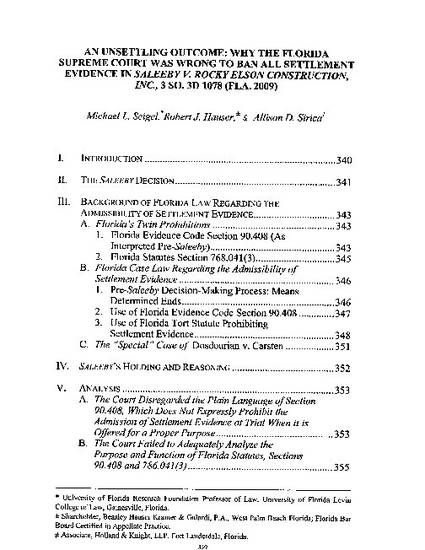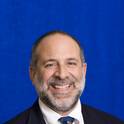
It is rare that a court as sophisticated as the Florida Supreme Court casually makes a fundamental mistake in an important area of the law. Unfortunately, Saleeby v. Rocky Elson Construction, Inc., 3 So. 3d 1078 (Fla. 2009) represents one of these unusual instances. The Court was faced with a simple question: may evidence pertaining to a prior settlement be offered at trial when it is relevant to something other than liability or the invalidity or amount of the pending claim. The universal answer under both federal law and the law of other states is yes, as long as the probative value of the evidence outweighs its prejudicial impact. In Saleeby, the Florida Supreme Court held that the answer is a resounding “no.” The result could be a miscarriage of justice – for instance, in a case in which a witness’s testimony is effectively “purchased” through an overly generous settlement, but the fact-finder will be prevented by the Saleeby holding from finding this out.
